Emily Sprague
There are mentions of Scottish pipers in North Carolina in the 18th and 19th centuries, including the piper and drummer who signaled the beginning of the historic battle at Moore’s Creek bridge in 1775. However, the first bagpipe band only appeared in the state mid-way through the 20th century. Following is the first of three articles tracing the lineage of North Carolina’s 44 known bagpipe bands.
The First Thirty Years
The first bagpipe band in North Carolina was formed in 1946 by Jack Smith, a Scottish emigrant living in the Winston-Salem area. The Caledonian Pipe Band consisted of P/M Smith, his two high school age sons and six other young people, all taught to pipe or drum by Smith. The band only lasted a few years with the most memorable performance being Kerr Scott’s gubernatorial parade in Raleigh. With twenty-two active bands today, it is hard to imagine that there were no pipe bands in NC in 1956 when Agnes McRae Morton and Donald McDonald first organized the Grandfather Mountain Highland Games.
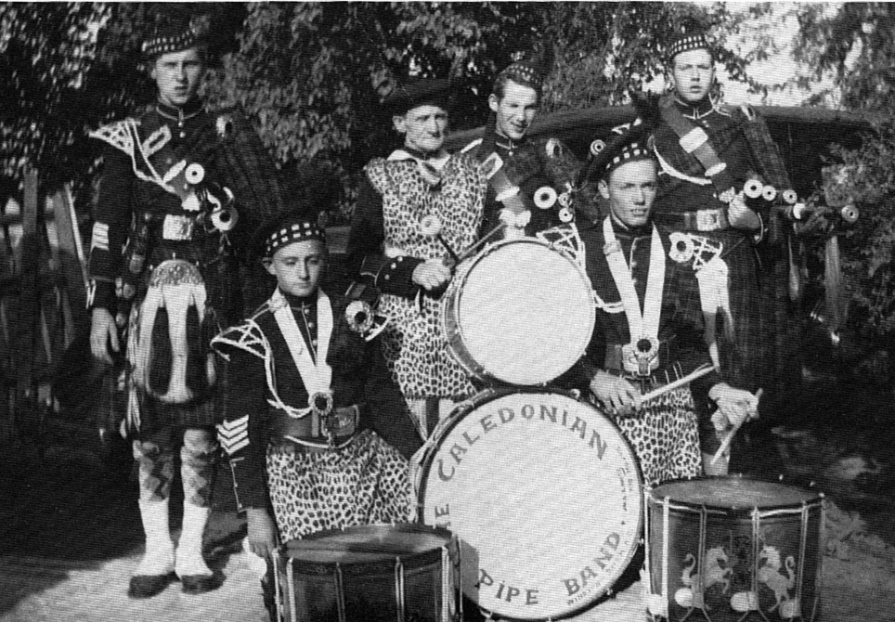
The second band in the state was also formed by Jack Smith. In 1964, the president of the Burns Society of Charlotte sought Smith’s help in starting a pipe band in Charlotte, the Charlotte Caledonian Pipe Band. Within a few years, Harvey Ritch moved into the role of Pipe Major, launching his influence on the local piping scene for several generations.
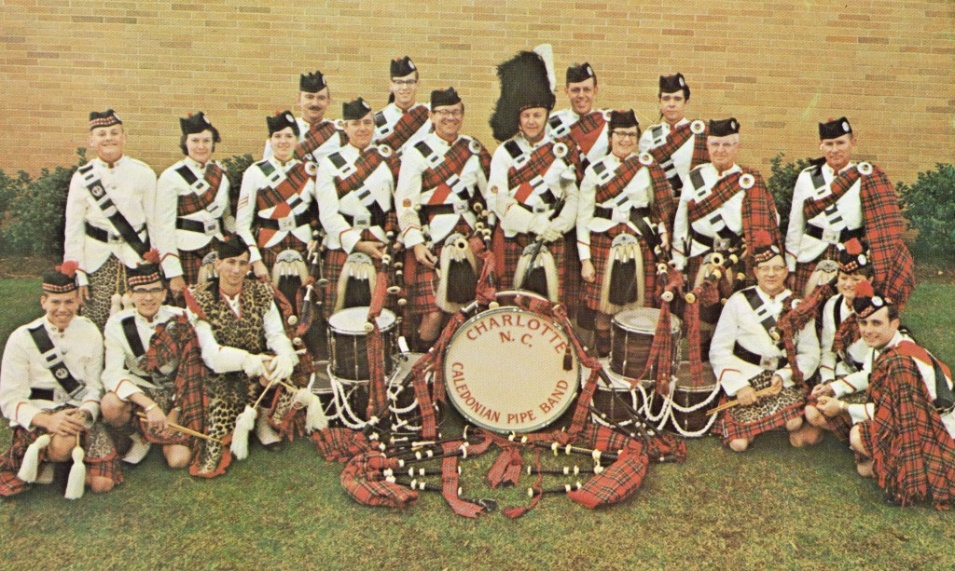
While Charlotte was forming a band, piping was also heard in Greensboro as Dr. Henry Hood, a professor at Guilford College, started the Guilford College Pipe Band made up of students and faculty.
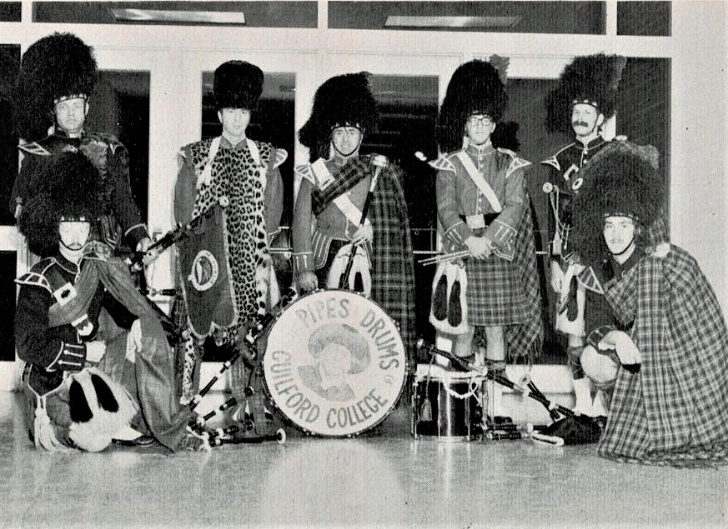
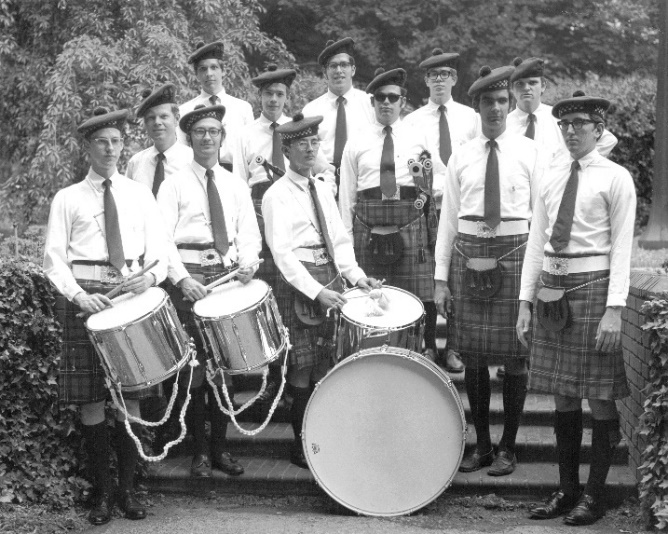
In 1968, Ted Tonkinson and Bob Howland, two graduate students at North Carolina State University in Raleigh formed the second college and university pipe band in the state, the NCSU Pipes and Drums. For the first 10 years, its band membership was restricted to current students.
Piping Schools Are Established
Interest in piping accelerated through the late 1960’s and 1970’s. In the span of thirteen years, three different summer schools for piping and drumming were established. Sally Southerland realized her dream of teaching Scottish culture to young people through the Highland Arts Camp (1966-1982), later known as the School of Scottish Arts, held on the campus of Lees McRae College. John MacFadyen and Sandy Jones started the Grandfather Mountain Highland Games School of Piping in 1972 at Crossnore School. The school later became the North American Academy of Piping and Drumming and moved to Valle Crucis. Albert McMullin established the Balmoral School of Piping (1979-1991) on the campus of Guilford College.
Meanwhile, Scottish emigrants John Kiely and Ken Swinton taught piping to young people in the Asheville area, the beginning of the Asheville Highlanders (1972). With sponsorship by the Montreat Scottish Society, the name changed to the Montreat Scottish Pipes and Drums in 1983. Statesville High School (1961) and Scotland County High School (1975) added pipe corps to their marching bands.
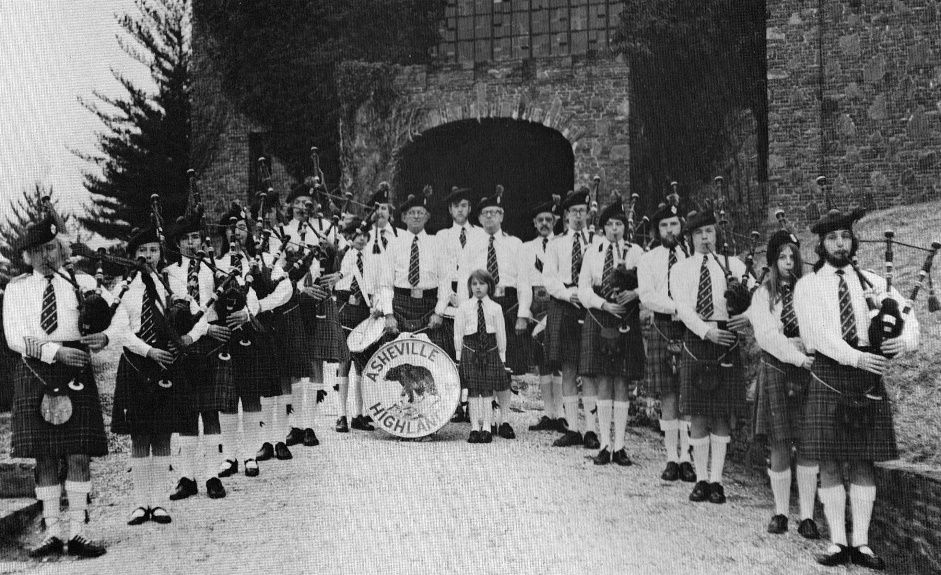
Band Competitions
Harvey Ritch selected young players from the Charlotte Caledonian band to form the state’s first competition band, the Charlotte Scottish (1970). This picture includes Highland dancers. Albert McMullen was recruited to lead the band. It is remarkable that the young band won Grade 3 at its first competition in Fair Hill, MD in June 1971. In 1973, Harvey Ritch organized the Charlotte Scottish Games, a band competition featuring fourteen bands. North Carolina bands were represented in each grade: Charlotte Scottish in Grade 2; NCSU Pipes and Drums in Grade 3; Charlotte Caledonian Pipe Band in Grade 4. The Games were only held one year. In 1974, Ritch moved his Scottish import store, Everything Scottish, to Banner Elk and merged the Charlotte Scottish with the newly formed Grandfather Mountain Highlanders.
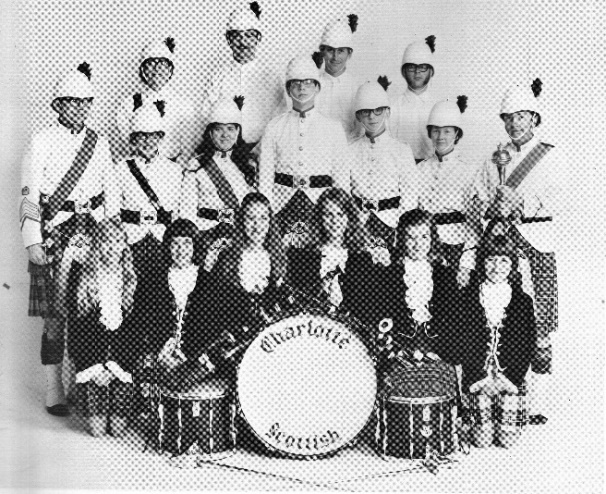
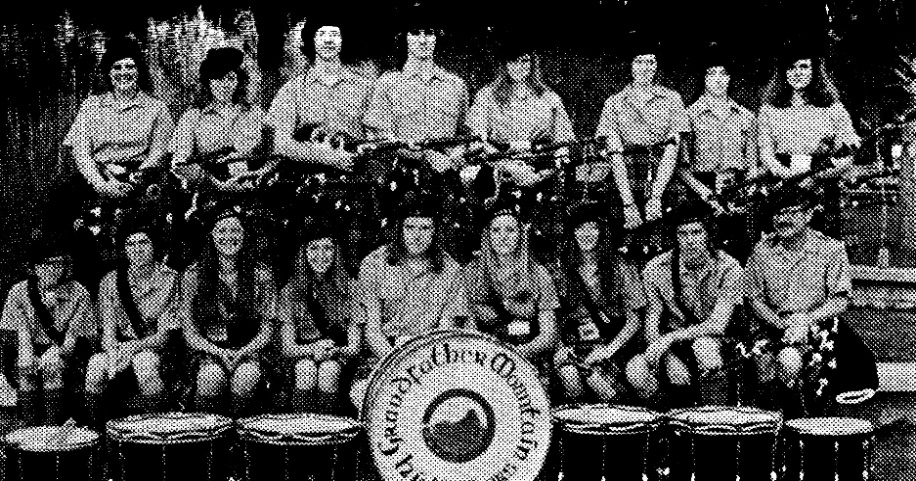
Two other Scottish gatherings in the 1970’s were the Scotch Faire at Ellerbe Springs (1976 and 1977) and the Flora Macdonald Highland Games at Red Springs (1976 to 2007). For many years, the FMHG offered a popular quartet competition for pipers before changing to full band contests.
From the first pipe band in 1946 until the Charlotte Scottish competed in 1971, all North Carolina bands were performing bands only. By 1976, five bands were entering sanctioned contests: Charlotte Caledonian, NC State, Asheville Highlanders, Grandfather Mountain Highlanders, and Clan Cameron Pipe Band (1976-1978). Clan Cameron was a band made up of pipers and drummers acquainted through piping schools, each a top solo player. Band members, under the direction of P/M Bill Logan, easily won each of the four contests entered.
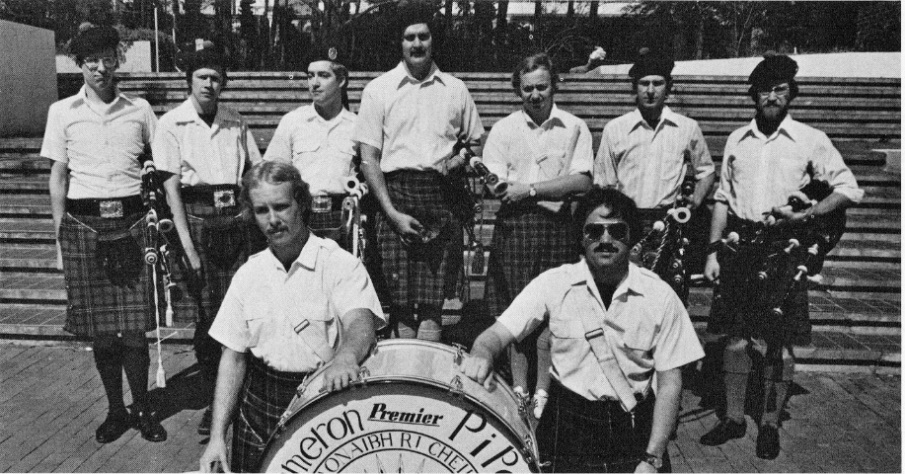
Coming next: The lure of pipes extends to Shriners, Boy Scouts, and towns originally settled by Scots.

